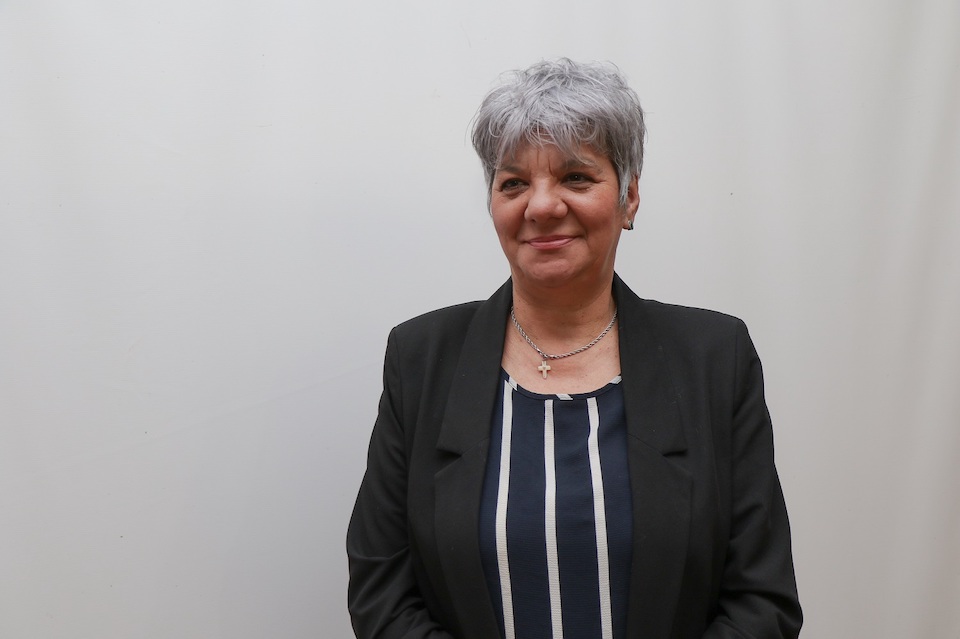Interview: “In organic production, rural women in southeast Serbia can earn more and ensure steady source of income”
Date:

Karolina Stamenković has been the head of the non-governmental organization “Women's Ethno Centre - Lužnice Handicrafts” since its foundation in 2008, in Babusnica, one of the poorest municipalities in Serbia. Today, the organization has over 80 members who work to empower and motivate women to improve their economic status and engage actively in their communities. She spoke to UN Women about the challenges rural women are facing and the results of a project to support unemployed women’s economic activation through their inclusion in organic production in the Pirot District. The project is being implemented as a part of a programme to support gender equality in Serbia, with funding from the European Union.
What are the biggest obstacles for rural women to enter the labour market?
Women from Babusnica municipality are mostly over the age of 50. The chances of employment for this category of women are very low. The factories do not work and women of that age often do not decide to work again. They are mostly employed on family farms or engaged in unpaid work, caring for their families or sick relatives. However, we have noticed that women from rural areas want to and can get involved in organic production and since 2016, our association has been engaged in developing this sector. Women need more financial help from the State or local self-government to purchase greenhouses, irrigation systems and the help of professional services.
Why did Lužnice Handicrafts choose to focus on organic production for economic activation?
Plots are no larger than 50 acres. Since there are no larger factories in our region, plots are unpolluted and we have abundant spring water – ideal conditions for organic production. Women are especially interested in this type of production because they know they can grow healthy products that are not treated with chemicals. They maintain the traditional way of production and use traditional seeds. Moreover, we know that healthy and organic food has been in great demand in recent years so they can earn more with smaller plots of land. In that way, organic production can become their main source of income.
What activities and results has the project achieved so far?
We organized orientation trainings in the municipalities of Pirot County and around 90 women participated. Besides that, over 70 women did trainings on organic production. The Resource Centre for Organic Production was established to help women who are interested in production, whether they need assistance in filling out forms to apply to the certification body, filling out applications for grants, or exchanging traditional vegetable seeds. Moreover, we are working hard to reach as many rural women as we can to motivate and encourage them to participate in decision-making processes in their municipalities and to create initiatives. We are providing them with all the information they need.
How important is mutual support and cooperation among women?
It is very important and necessary to unite and exchange experiences and ideas. … This was best shown in 2017 when we, 15 women in organic production, founded the first women’s cooperative "Gifts of Lužnice" in southern Serbia. This cooperative processes fruits and vegetables from organic and conventional production. We buy most fruits and vegetables from women farmers and process them into products according to traditional recipes, such as jams, juices and pickles. This way, women can make an income not only by selling the raw fruits and vegetables during the season but also by selling these preserved products throughout the year.
What role has the support of UN Women Serbia played?
It means a lot to us. During the implementation of project activities, we educate women about organic production; we get their voices heard in local government bodies; we support them if they want to start organic production; and we help them with all the administrative and financial elements. Since we are in less developed and poor areas, and are struggling with funds, the support of UN Women is of great importance.